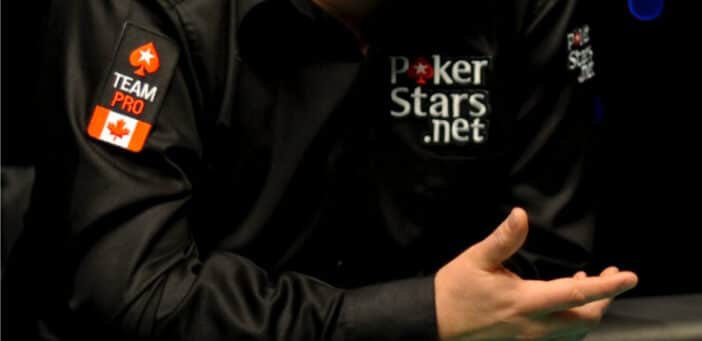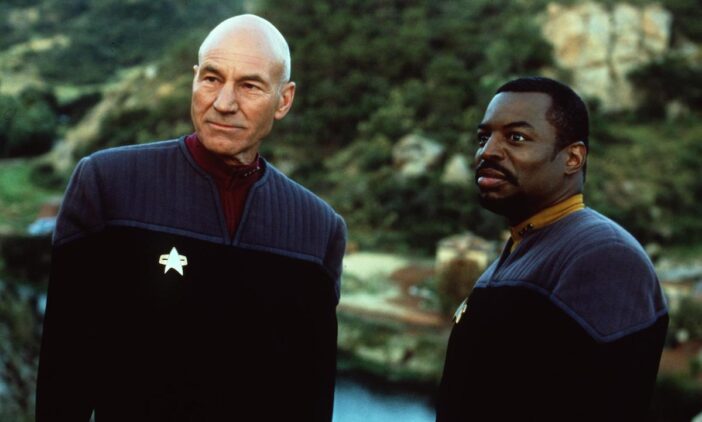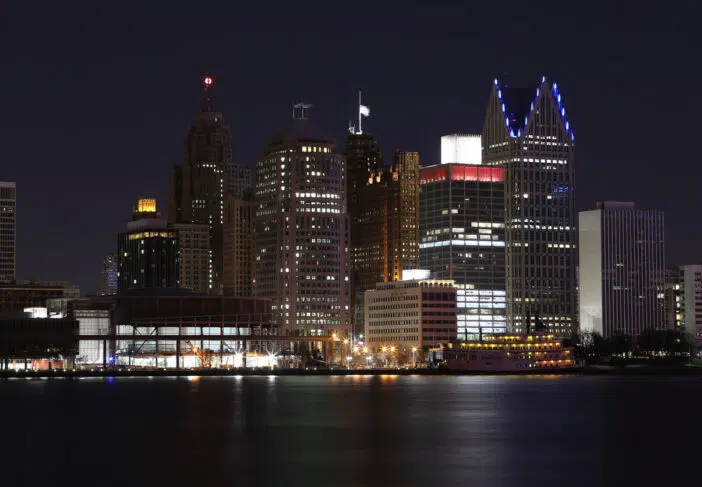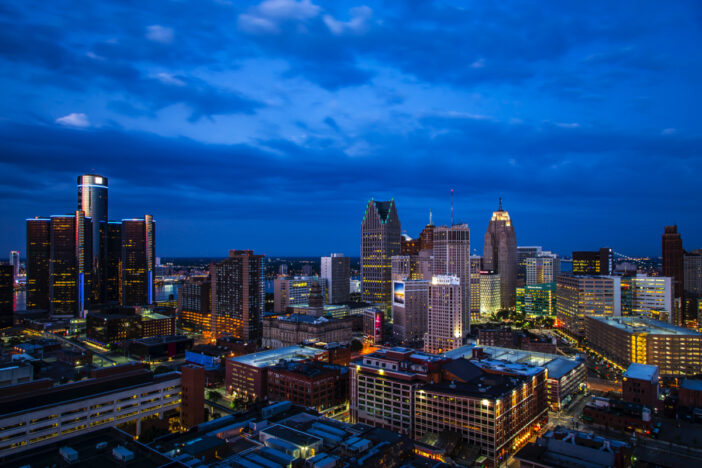There are some divorces you can see coming a mile away. But the split between PokerStars and Chris Moneymaker, after 17 happy years of marriage, took almost all of their friends by surprise.
Since 2003, Moneymaker was the perfect ambassador for ‘Stars and ‘Stars the perfect sponsor for Moneymaker. But when the calendar turned from 2020 to 2021, they went their separate ways.
And the timing seemed peculiar to American audiences: They stayed together for nearly 10 years after Black Friday, but just as regulated online poker was starting to gather momentum in the U.S., with PokerStars Michigan just weeks away from launching in Michigan, the mutual moneymaking was over.
The amicable split, which seems to mostly have centered around Moneymaker no longer being up for the amount of international travel required for his ambassador role, comes at not just a pivotal time for online poker in the U.S., but perhaps at an inflection point for poker pro sponsorships. Whereas at the height of the battle for supremacy between PokerStars and Full Tilt Poker in the period between the UIGEA in 2006 and Black Friday in 2011 there were as many as 160 sponsored “Full Tilt Pros” at once, now hardly any American poker players have such deals.
Poker pro sponsorship in America has bottomed out. The question is whether that is just a temporary reality before promotional deals between operators and poker players slowly grind their way back up.
Where things stand now
Last month Michigan became the fifth state to deal virtual cards in a regulated environment, joining Nevada, New Jersey, Delaware, and Pennsylvania. West Virginia has also legalized online poker, but the games haven’t launched yet.
The only sites operational in any of those states are PokerStars, WSOP.com/888poker (two brands sharing a network), and PartyPoker.
It was a big deal in 2014 when 2012 World Series of Poker Main Event champion Greg Merson signed a sponsorship contract with WSOP.com because aligning with pros hadn’t been a part of the WSOP.com strategy to that point — and it isn’t now, as the operator has no pro ambassadors currently listed on its sites.
Team PartyPoker includes only three Americans, and one of them, Kevin Hart, is far from a poker pro. And those who are American poker pros are clearly there primarily to wield international influence, much like Moneymaker post-2011 with PokerStars.
The only American player on PokerStars Team Pro now that Moneymaker has departed is Jen Shahade, a Pennsylvania-based multi-threat dubbed a “Mind Sports Ambassador” for her prowess in poker and chess (she’s a two-time U.S. Women’s Champion) who also brings media experience to the table. But she might not remain one of a kind in the Keystone State for long.
“She is a fantastic ambassador for both poker and chess,” Rebecca McAdam-Willets, associate director of group public relations for PokerStars, told MI Bets. “We will shortly be announcing some new ambassador streamers in PA.”
That’s encouraging news for Michigan-based poker pros hoping for a similar sponsorship deal, whether with PokerStars or with one of the other operators soon to land in the state. Added McAdam-Willets, “We always have our eye out for talent to support, whether that’s through an ambassador sponsorship, helping a Twitch streamer to grow and create content, or simply ad hoc opportunities that help spread the word about our game while engaging those who love it.”
Riess grabbing a piece
In Michigan, there are two pros particularly obvious for sites to target. In a five-year span, two young men from the state won the WSOP Main Event — Joe Cada in 2009 at age 21, and Ryan Riess in 2013 at 23.
Riess hasn’t actually lived in Michigan since before his breakthrough WSOP victory — he currently resides with his wife and three young daughters in Las Vegas — and hasn’t been back in Michigan to play on PokerStars since the site launched, but that isn’t stopping sites from showing interest in sponsoring him.
“My agent is actually in active talks with a few different operators,” Riess told MI Bets. “I can’t talk too much about the specifics of the deals and who we’re talking to, because they’re actively under discussion. But we have been approached by a lot of the different potential poker sites — and online sportsbooks, because sports betting just started a few weeks ago in Michigan. Everybody’s trying to find ways to attract more players than their competition. So, there’s been a lot of interest.”
Riess famously didn’t sell advertising space on his clothing when he won the Main Event — choosing instead to wear a patch-less Calvin Johnson Detroit Lions jersey — and he never signed a major online poker sponsorship deal after that. But times are changing.
“I may be getting more requests and more interest because I’m from Michigan, whereas somebody else who’s from, say, Kansas isn’t going to get the same interest right now,” said Riess, who plays regulated online poker on occasion in Nevada and drives to Mexico every month or so to play in larger international online tournaments. “But as online poker spreads across the country into more states and more jurisdictions, I’d assume that these operators are going to want well-known, marketable players to be the face of their brand.
“I think poker sponsorships will come back big. The future looks bright when it comes to that.”
The role of the ambassador has evolved
As Riess acknowledges, his experience might be unique for now, as a highly recognizable player from a large state that just entered the regulated online poker waters.
PocketFives.com Editor-in-Chief Lance Bradley is less convinced than Riess that pro sponsorships are on the verge of roaring back.
“There’s a major difference in what’s expected of an ambassador now vs. what was expected 10 years ago, 15 years ago,” Bradley explained. “I mean, when the rush was on for Full Tilt to sign as many pros as they could, it was simply, ‘We want a patch on a player in live tournaments to put the brand on TV and photographs.’ That’s no longer the case. If you’re a ‘Team Pro,’ you need to be able to provide direct correlation of value. Are you streaming? Do you have a social media presence that has a strong following that can drive traffic to the site? The sites these days are all about new-money depositors — if you’re able to drive new players to sign up and play poker for the first time, you’re a hit — and about driving activity and making sure that the players you already have are engaging with your site on a regular basis.
“So if you’re a pro, and you’re hoping to get a sponsorship deal, and you’re not able to do either of those things, I don’t think there’s much hope for you to get that deal.”
The World Series of Poker used to be an annual home to a rush of deals to slap patches on players’ shirts and hats. After the in-person WSOP missed a year due to the COVID-19 pandemic in 2020, it’s reasonable to wonder if the patching pace might pick back up if the World Series returns to Las Vegas this summer.
PokerStars’ response on that front echoes Bradley’s expectations.
“The WSOP does not have an impact on our plans,” McAdam-Willets said. “Visibility is always great, but there’s so much more to being, and working with, an ambassador.”
Michigan might be a game-changer for Riess or Cada, but Bradley believes we’re still several states away from the game truly changing.
“I think there’s a possibility we return to more lucrative national deals for pros eventually, but we would need 10 to 15 states running online poker, most likely, and there would need to be shared liquidity among most of them,” Bradley said. “Otherwise, if you’re putting a patch on a guy for your Michigan poker site, and you’re hoping that someone in Michigan sees it — I think most people in marketing departments for online poker would say that’s a path that’s hard to justify the costs for right now. At the same time, for a pro, the amount of dollars you get to be an ambassador in a single state might not be worth it.
“I think as companies like PokerStars and BetMGM continue to expand, you may see them try and add some bigger names that could help with getting the brand out there. But I don’t believe we’re there yet.”
‘In the United States, regulation is king’
Just because he parted ways with PokerStars, that doesn’t mean Chris Moneymaker’s days as a sponsored poker pro are over. In January, he announced a new deal to represent the unregulated offshore site America’s Card Room.
Will this mark the start of a different kind of trend, of American poker players signing deals with black-market or gray-market operators?
Probably not, as Moneymaker is one of only about four or five names in American poker valuable enough to warrant interest. Also, aligning with such sites has a downside.
“Whether it’s the World Poker Tour, or the WSOP on ESPN, or PokerGO, they all have the ability to limit or prevent somebody from wearing a patch of a site they don’t want promoted on their product,” Bradley noted. “I can imagine that if somebody representing an offshore site that takes American players was to show up on a feature table, they’d be told to take off the patch or cover it up. I’ve seen it happen.
“In the United States, regulation is king, and working with a non-regulated site puts you in a bad light with those regulators.”
Unfortunately, the option to work with a regulated site doesn’t exist for many poker pros at the moment. But that appears to be starting to change. The sponsored-pro arms race that peaked around 2008 is probably never coming back. But poker players with an audience in a particular state have a chance of being dealt into a smaller game, and if the player pool expands to a few more jurisdictions over the next few years, the monster pots could follow.
New to online poker? Try the PokerStars Michigan bonus code.





